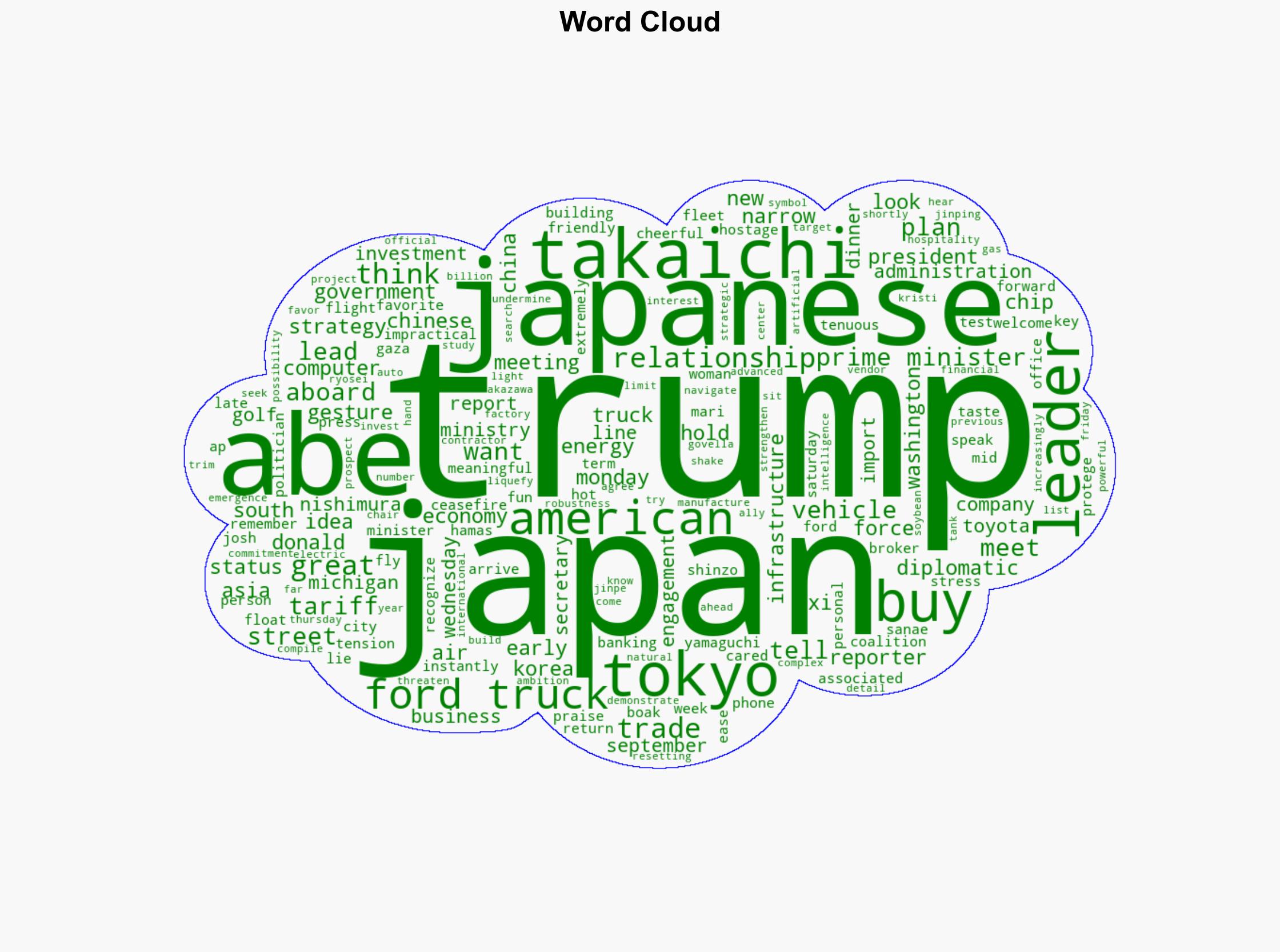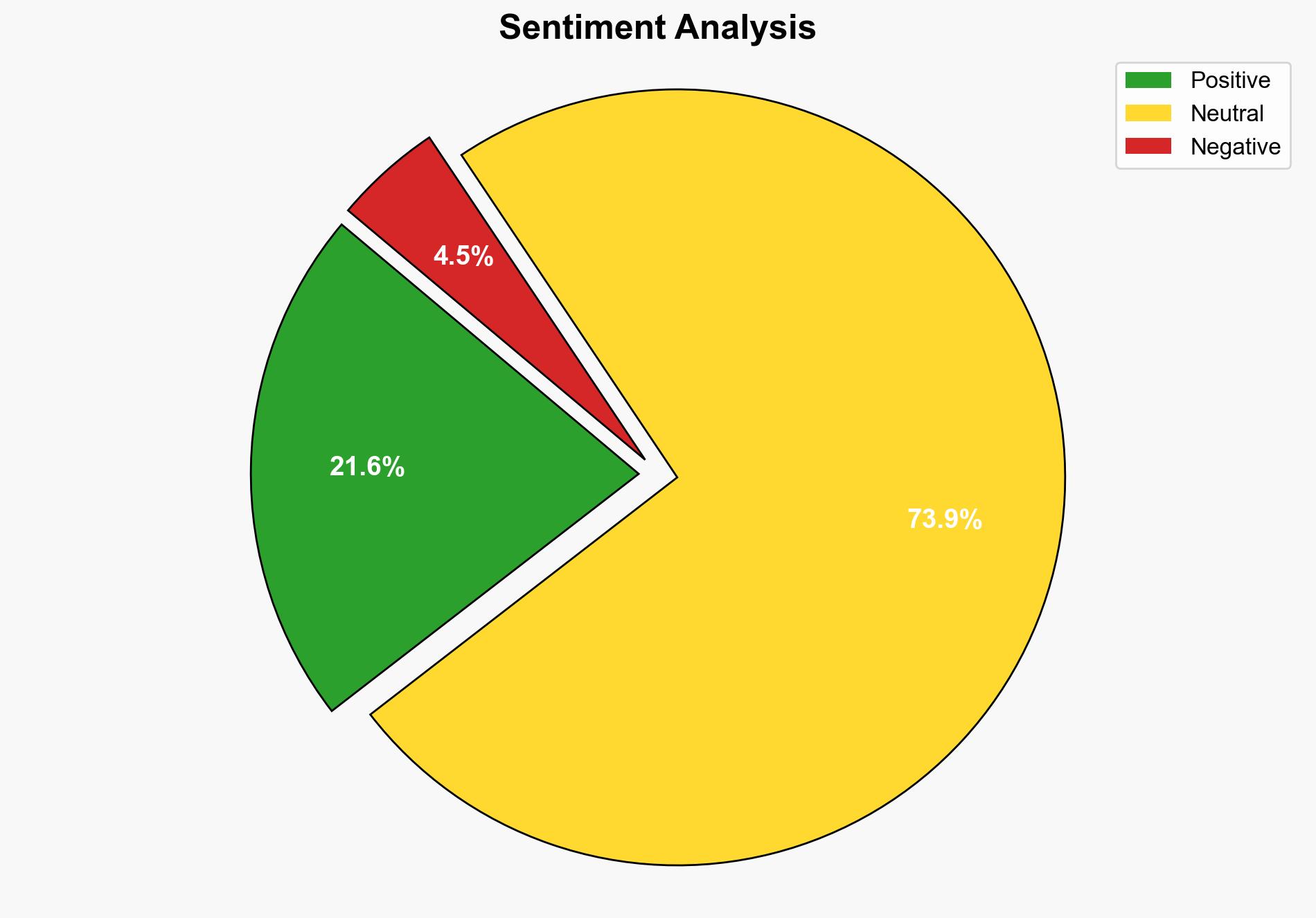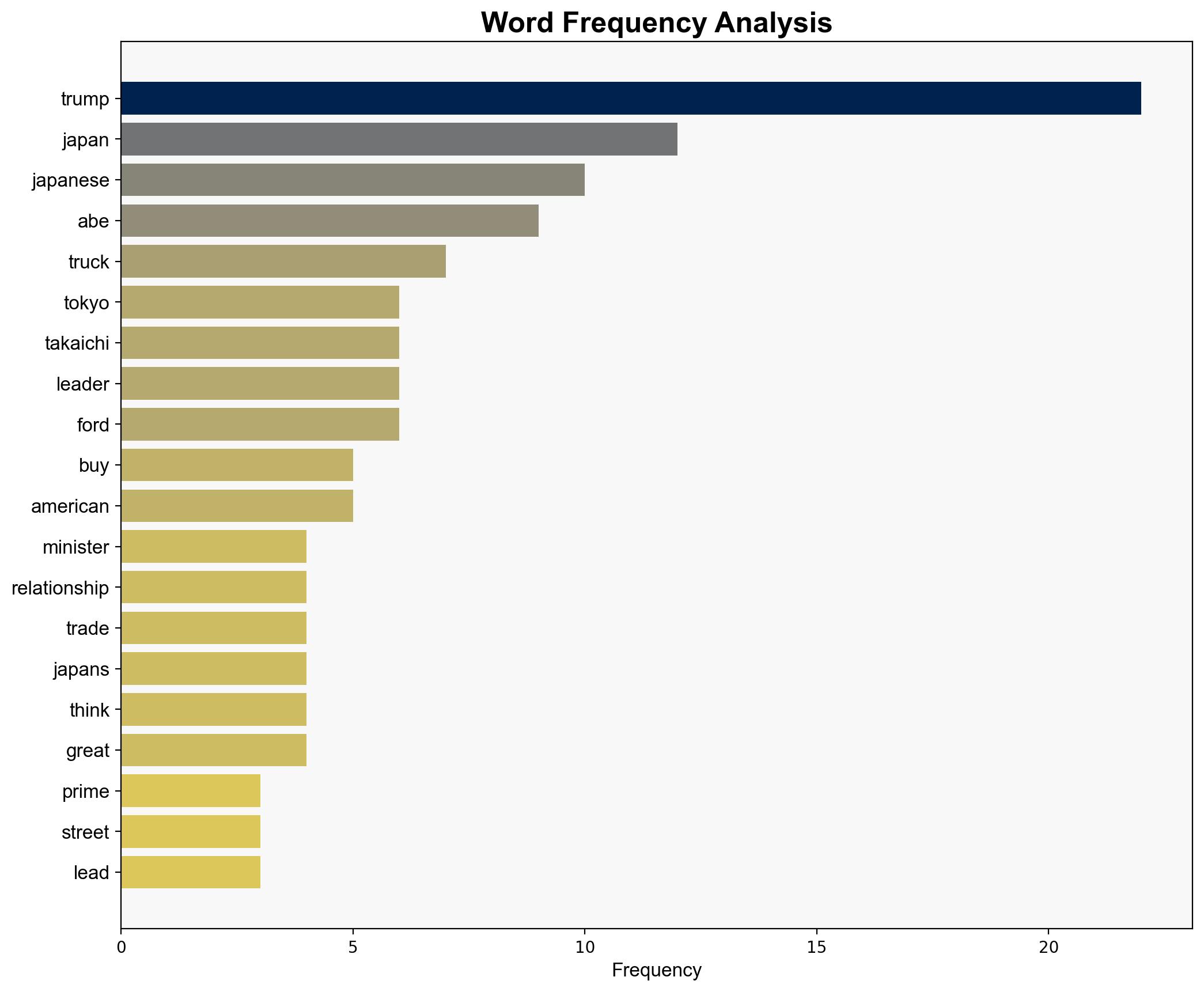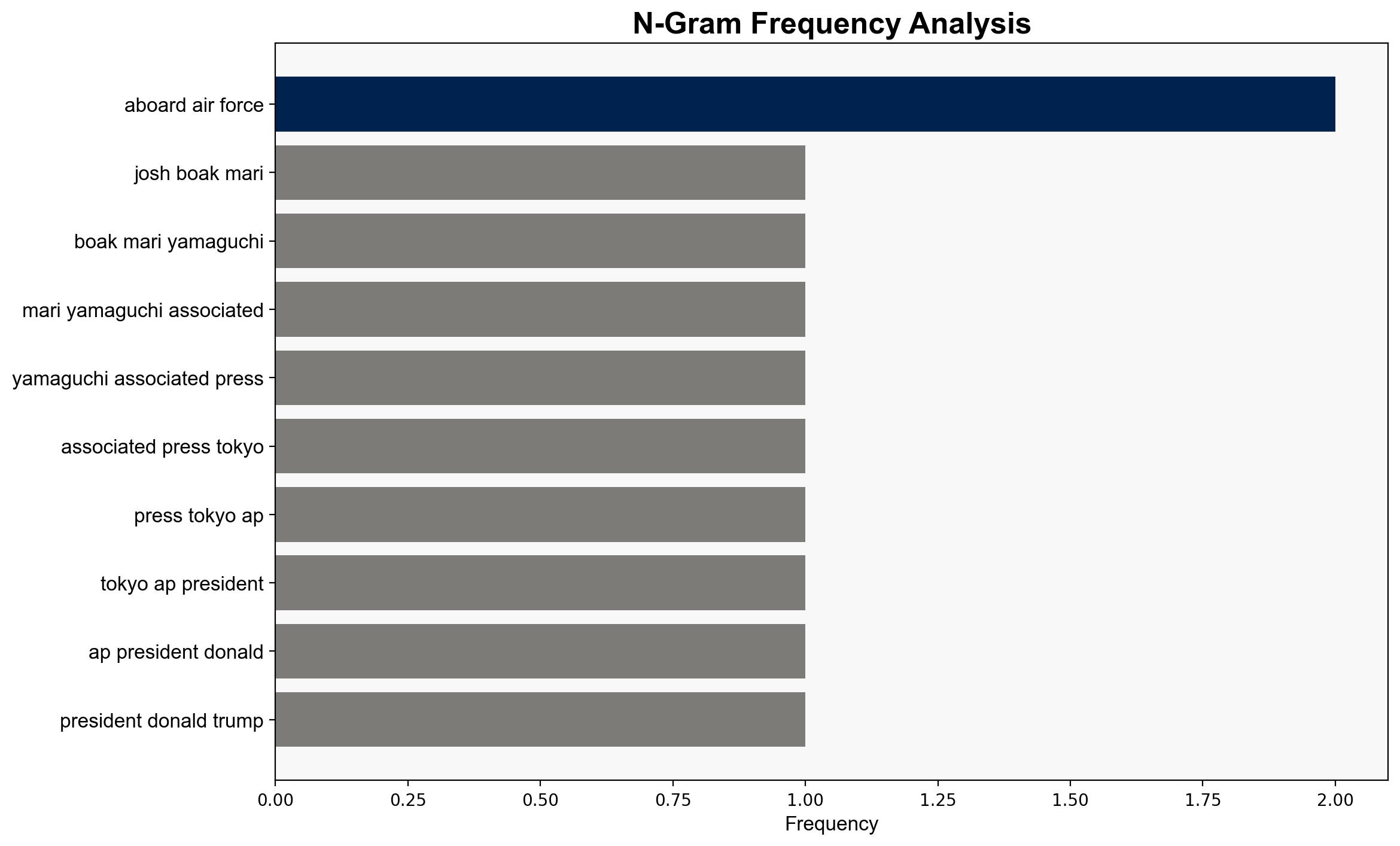A fleet of Ford F-150 trucks could be key to Japans new leader connecting with Trump – mlive.com
Published on: 2025-10-27
Intelligence Report: A fleet of Ford F-150 trucks could be key to Japan’s new leader connecting with Trump – mlive.com
1. BLUF (Bottom Line Up Front)
Japan’s new Prime Minister, Sanae Takaichi, is considering purchasing a fleet of Ford F-150 trucks as a diplomatic gesture to strengthen ties with Donald Trump and ease trade tensions. The most supported hypothesis is that this gesture is primarily symbolic, aimed at demonstrating goodwill and aligning with Trump’s preference for American goods. Confidence level: Moderate. Recommended action: Monitor developments in Japan-U.S. trade relations and assess the impact of this gesture on broader economic negotiations.
2. Competing Hypotheses
1. **Symbolic Gesture Hypothesis**: The purchase of Ford F-150 trucks is a symbolic gesture intended to curry favor with Trump and improve diplomatic relations, with little practical impact on trade.
2. **Strategic Economic Move Hypothesis**: The purchase is part of a broader strategic move to secure favorable trade terms and investment opportunities from the U.S., potentially influencing future economic policies.
Using ACH 2.0, the evidence supports the Symbolic Gesture Hypothesis more strongly, as the impracticality of using large trucks in Tokyo suggests a focus on symbolism rather than utility.
3. Key Assumptions and Red Flags
– **Assumptions**: It is assumed that Trump values symbolic gestures involving American products. It is also assumed that Japan’s government can easily implement such a purchase without significant logistical challenges.
– **Red Flags**: The impracticality of using Ford F-150 trucks in Tokyo’s narrow streets raises questions about the feasibility and sincerity of the gesture. Additionally, the lack of a clear statement from Ford or Japanese officials on the logistics of this purchase suggests potential deception or miscommunication.
4. Implications and Strategic Risks
– **Economic Risks**: If perceived as insincere, the gesture could backfire, leading to increased trade tensions.
– **Geopolitical Risks**: The gesture may strain Japan’s relations with China if perceived as aligning too closely with U.S. interests.
– **Psychological Risks**: Over-reliance on symbolic gestures may undermine Japan’s credibility in future negotiations.
5. Recommendations and Outlook
- **Mitigation**: Japan should ensure that any symbolic gestures are accompanied by substantive policy proposals to avoid perceptions of insincerity.
- **Exploitation**: Leverage the gesture to open dialogue on broader trade issues, using it as a starting point for negotiations.
- **Scenario Projections**:
- **Best Case**: The gesture successfully strengthens Japan-U.S. relations, leading to favorable trade terms.
- **Worst Case**: The gesture is dismissed as insincere, exacerbating trade tensions.
- **Most Likely**: The gesture is acknowledged but has limited impact on substantive trade negotiations.
6. Key Individuals and Entities
– Sanae Takaichi
– Donald Trump
– Shinzo Abe
– Akio Toyoda
7. Thematic Tags
national security threats, economic diplomacy, U.S.-Japan relations, trade negotiations




